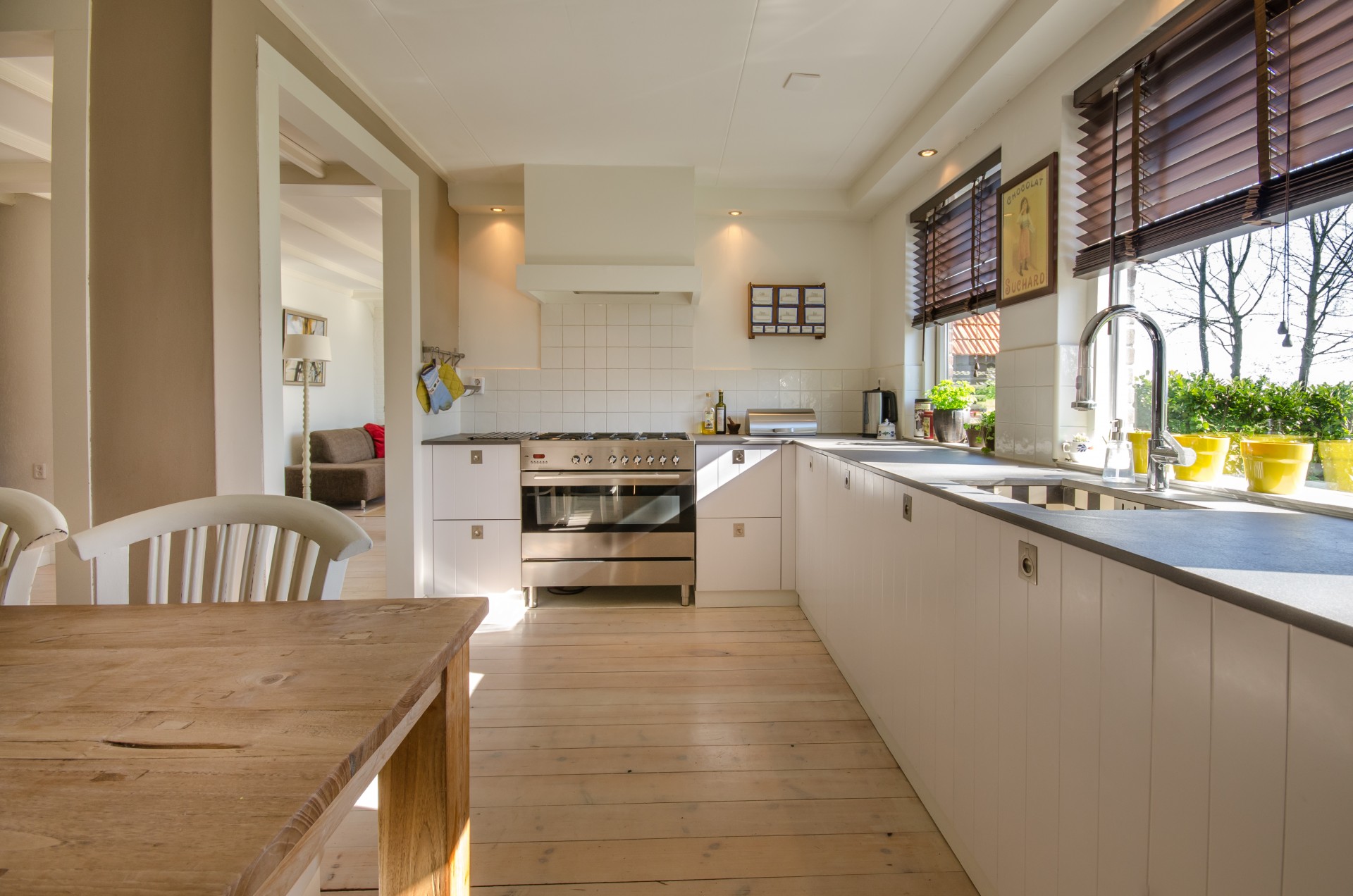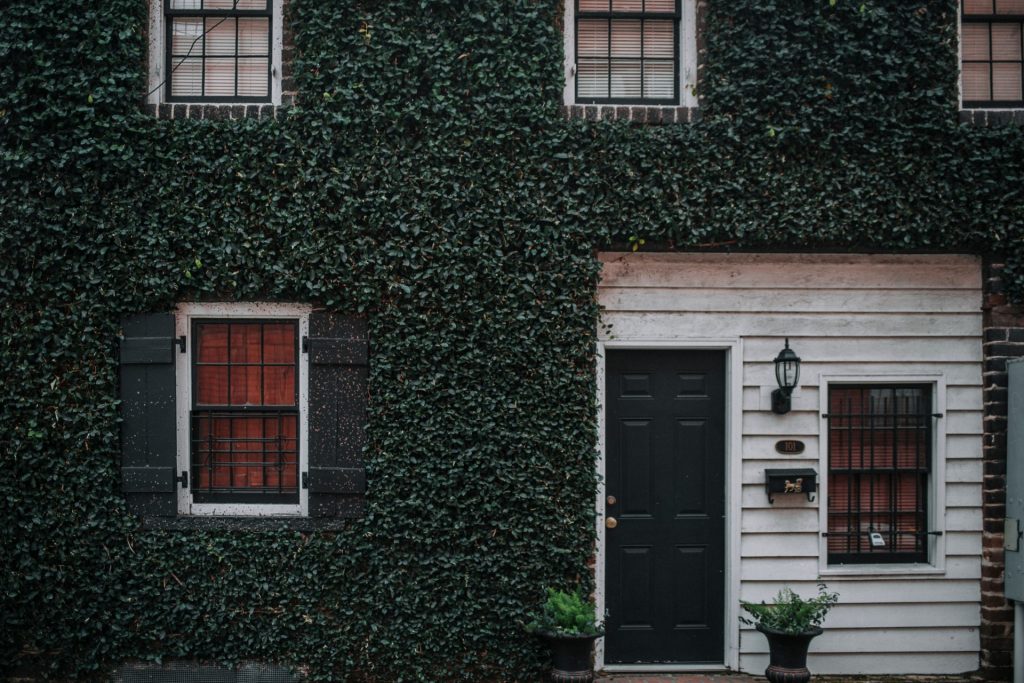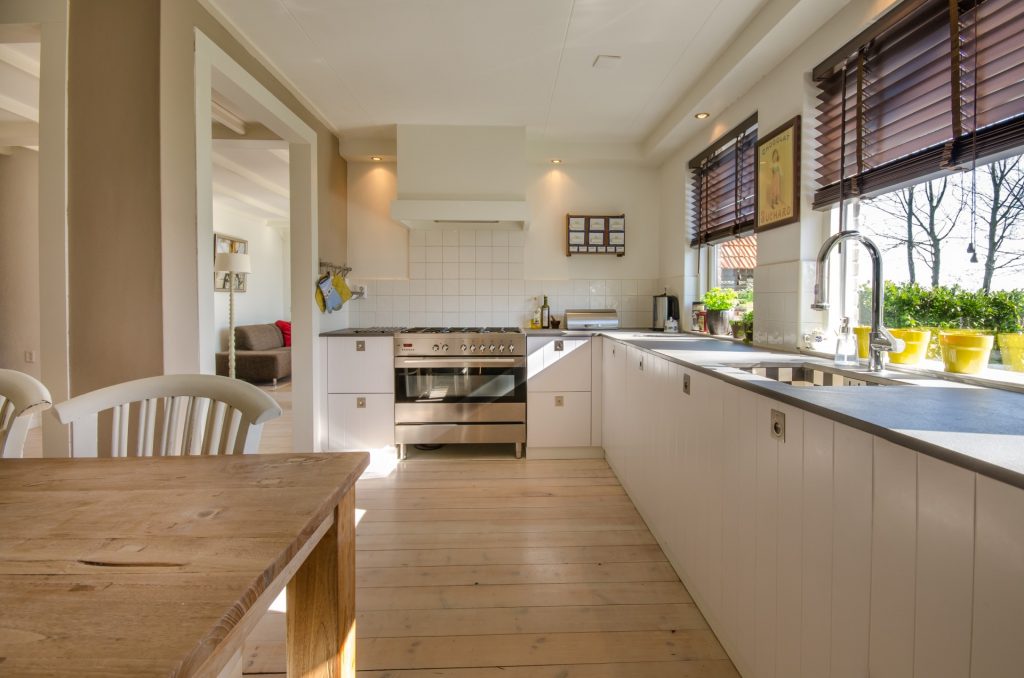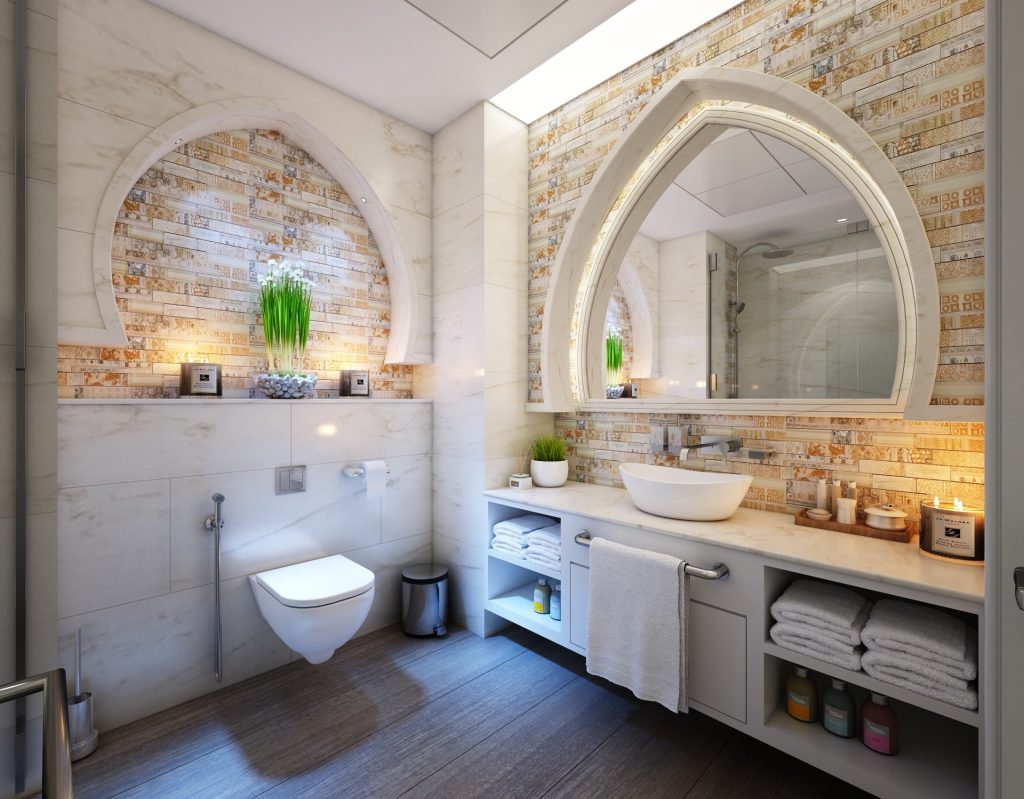Discover The Wonders Of Feng Shui For Your Home
 Over the years, sellers have tried a lot of different “techniques” for selling a home quickly like combining Feng Shui elements into the available rooms to attract buyers. We’ve all heard of Feng Shui, but did you know that it can help you sell your home? Below we’ll be looking into what Feng Shui is and how you can incorporate this into your property.
Over the years, sellers have tried a lot of different “techniques” for selling a home quickly like combining Feng Shui elements into the available rooms to attract buyers. We’ve all heard of Feng Shui, but did you know that it can help you sell your home? Below we’ll be looking into what Feng Shui is and how you can incorporate this into your property.
What exactly is Feng Shui?
Feng Shui is a study of science, art, psychology, biology and topography. Feng Shui is definitely NOT a religion, cult or superstitious practice. Feng Shui is used today by people from many different cultures to design the best overall environments to work and live in. People today spend an average of 80% to 90% of their time indoors. This is why creating a healthy environment to work and live in is so important. The goal is to create a harmonious, empowering, and friendlier space that makes your life easier, the end result is an optimal environment that supports your personal and business goals. Did you know that prosperity and feeling good is directly related to the flow of energy in your environment?
For thousands of years people have been designing their homes using Feng Shui to attract good fortune – this ancient Chinese art of arranging furnishings, doors, windows and decorative items in a particular way is meant to improve luck. It is also used to identify positive and negative effects within an environment. Psychologists have said and most people would agree “We are products of our environment.” Our homes and work environments have an enormous impact on our health, well-being and state of mind. Many are familiar with the Winston Churchill quote, “We shape our dwellings; thereafter our dwellings shape us.” This is a profound architectural truth that applies to all buildings, public and private. In the beginning, buildings reflect the qualities of the people who design and construct them. Once built, the people who live and work in them take on the qualities of the buildings they inhabit.
According to ancient writings, Feng Shui is a manner of arranging your surroundings, in this case, the interior of your home, to improve and enhance the natural flow of life energy. Any realtor worth his or her salt is already aware of the importance of properly staging your home to improve the odds of selling it and doing so for the best possible price. However, more realtors are now starting to understand the value of using Feng Shui as part of prepping homes for sale.
Feng Shui teaches us that everything is energy, and we are in a constant energy exchange with everything around us. Thus, it is it very important to create a Feng Shui home that has a happy and healthy energy. We will be exploring a variety of tips that follow the Feng Shui beliefs, all based on the fact that if the home is healthy and happy, the energy of the residents will inevitably become healthy and happy.
Have you noticed how happy people change the energy of the room when they come in? And how you become happier and more optimistic when you hang out with your happy friends? This is happening because you are in a constant energy exchange with everything that surrounds you – people, animals, buildings, trees, etc.
Good Feng Shui means good energy, and people are always attracted to it! This will help you with the house sale in the future.
Feng Shui has been used by leaders such as Hilton Hotels, Donald Trump, Oprah Winfrey, Steven Spielberg, Tommy Hilfiger and top leading companies such as Virgin Airlines, Nike, Bank of America, Morgan Stanley, Swiss Stock Exchange, and Coca-Cola, just to name a few.
Consider using Feng Shui principles to not only attract buyers but also to help ease the sometimes-emotional act of selling a home.
Here are some Feng Shui tips and tricks to bring the art of positive energy into the house and to help sell a home
Let me assure you that you do not need to have a deep understanding of Feng Shui principles in order to start applying Feng Shui in your home. Here are some easy Feng Shui tips you can apply right away to create a better quality of energy.
The front door
A front door has a good relationship with the house structure. A strong Feng Shui front door is a door that has good proportions in comparison to the house as a whole. This simple point is often forgotten during home renovations, so you can often see two or three-story houses with tiny front doors. This might have been enough when the house was a small, a one-story structure, but with the bigger house, you need a bigger front door. A good Feng Shui front door should be strong but not be too big nor too small. This applies to all main doors, from the front door of a home to the main door of a business.
A front door opens inwards not outwards
A front door opening inwards is welcoming, or pulling in the Chi-energy, instead of pushing it away. If the door opens outwards, change the position of the hinges. The front door opening outwards can spoil the Feng Shui of the entire house.
Have a bathroom facing the front door?
The reason a bathroom door facing the main door is considered bad Feng Shui is rather simple: The Universal energy, or Chi, comes into the house through the front door. If your bathroom is facing the front door, most of the good energy will escape easily through the bathroom, leaving little or no good Feng Shui energy to nourish the house.
A main entry mirror facing the front door
A mirror facing the main door is one of the two big taboos in Feng Shui (the second one being a mirror facing a bed.) The reason it is not recommended to have a mirror facing the main door is that the mirror pushes away all the good Feng Shui energy that is about to enter the house.
As the house receives its energetic nourishment through the front door, having a big mirror pushing away all the good energy can certainly create a challenging Feng Shui scenario.
Does your entry door squeak or whine when you open or close it?
The entry door is the first and last thing you encounter when coming or going from your home. The sound is as if the door is crying and this can affect your mood and well-being. Many people become so accustomed to this recurring sound that they don’t even notice it. Oil that door hinge and create more positive energy when you enter and leave your house. It’s also helpful to oil any other door hinges throughout the home while you’re at it, but remember the entry door is the most important.
Keep the path to the front door clear
On the inside, you want to make sure you’re not walking directly into a wall – it can metaphorically make you feel like you’re up against a wall every day.
The bedroom
The bedroom is where we spend almost a third of our lives, which is why it’s important to make sure that the bedroom is located in the right “place” so that good energy can benefit us. A good Feng Shui bedroom is a bedroom that invites you, lures you in, excites and calms at the same time. A good Feng Shui bedroom is fun and pleasurable to be in, whether you’re there for a quick nap, a good night sleep or to make passionate love!
No TV, computer or exercise equipment
The good Feng Shui bedroom energy is destroyed when these items are present in your bedroom. They also bring the energy of work, stress, and are mainly a distraction and bad news for your relationship (with yourself or your loved one).
Have your bed easily approachable from both sides
If you can place the bed in the ideal Feng Shui spot for your bed – the so-called Feng Shui commanding position. The Feng Shui commanding position is the area furthest from the door/diagonally from the door, but not in line with it.
In other words, you want to be able to see the door while you are in bed, but not be aligned with the door. If your bed is in line with any door, be sure to tastefully position an appropriate piece of furniture between the bed and the door.
A strong supporting wall behind your bed is very important for a good Feng Shui bed placement. This creates strong, protective energy around your bed, gives it more power and ability to create (and hold) good energy. Do your best to position your bed in such a way that there is a solid wall behind it. For added strength, you can also choose to paint the wall in an accent color appropriate for your bedroom decor.
Have two bedside tables (one on each side)
Having grounding and balanced energy on both sides of the bed is very important for a good Feng Shui bed placement. This means you have to have two nightstands (not one), but it doesn’t mean that they have to match! Be as creative as you feel like and let your imagination soar, but be sure that your bed has access from both sides and is treated well with two similar pieces of furniture on both sides of the bed.
The living room
Clutter free
In a Feng Shui living room (and, frankly, any space trying to incorporate the restful, comfortable, and safe ambiance of a Feng Shui space), clutter will be avoided at all costs. Messiness, clutter, and other untidy distractions serve to hinder the flow of Chi as well as bring about a sense of discomfort.
Use hard-working, double-duty furniture pieces to help contain the clutter, as well as a good old-fashioned “pick up after yourself” mentality.
No mirror behind the sofa
The sofa shall not have a mirror behind, or you sitting on the sofa will expose your head to others from the mirror, which is ominous. It will be okay if the mirror is beside the sofa.
Avoid beam
If the living room has a spanning beam, the ceiling shall be covered with decorations, or the beam will bring you the sense of pressure and bad luck and make you nervous.
Positive artwork
A Feng Shui living room incorporates artwork, photos, or other images that are pleasant and positive. Smiling faces, pretty parts of nature, and other optimistic pieces are preferred over pieces (however remarkable they might be, artistically) depicting sadness, crime, struggle, or storm.
Reflect the positive
If you choose to incorporate a mirror into your Feng Shui living room, there are a couple of guidelines to follow. First, the mirror should avoid reflecting anything negative (e.g., clutter, grime, etc.), because that negativity will flow into your home. Second, the mirror should avoid reflecting anyone directly as they stand at a living room door.
Aquarium in the living room
If you have a place for it on the north side of your living room, an aquarium is a solid choice for the Feng Shui living room’s enhancement. (It’s said to facilitate wealth and opportunity; the southeast part of the living room is also good for aquariums, too, attracting good luck.) For the Feng Shui living room aquarium, a square or rectangular shape is best, with the round being the second choice.
The kitchen
The kitchen is also a Feng Shui symbol of wealth and prosperity. This is why one of the first rules for good kitchen Feng Shui is to avoid having your kitchen close to the front door or to the back door, where the Feng Shui energy can easily escape.
As we constantly exchange energy with our surroundings, a good Feng Shui kitchen leads to a good spirited chef, which, in turn, leads to good energy meals for a happy family!
Lighting
The kitchen should have several levels of proper lighting, be airy and spacious, clean, bright and welcoming.
Keep it simple
For good Feng Shui, keep the kitchen simple and do not overload it with gadgets or clutters.
Add some green living
Fresh flowers bring beautiful uplifting energy to your kitchen. Place a bowl of fruits, a vase of flowers, or a living plant on your kitchen table, windowsill, or wherever the layout of your kitchen allows.
Plants above the kitchen cabinets
Take a look at your kitchen cabinets and check to see if they are built up the ceiling or a soffit. It is good Feng Shui if there is no space above the kitchen upper cabinets. This space above the kitchen cabinets attracts dust and stagnant energy. The Chi gets stuck there and encourages dead energy which may hold you back in your life. If there is a space, there’s a Feng Shui adjustment for you! Place some lighting, green plants (live or very realistic looking) or beautiful and loved objects in this location. These objects bring life to this area and transform the energy.
Color it right
Choose colors that blend well and feel good together. Feng Shui-wise, the color yellow is a good choice for the kitchen, as it is good for your digestion. You can choose this color as light as “butter yellow” or as vibrant and strong as “squash yellow.”
The bathroom and toilet
As a place storing dirt and taking filth, the bathroom always has a filthy image no matter in the house or in terms of Feng Shui.
Remember, the bathroom and toilet are primarily governed by and driven by the element Water. In Feng Shui, Water is associated with wealth, prosperity, career and good cash flow. Secondly, you should keep in mind that bathrooms are associated with elimination and waste. With these two considerations in mind, it is easier to understand the main rules that apply to the layout and location of this space.
Ideally, the bathroom should not be aligned with the front door and should not be seen immediately on entering the house, as the incoming Chi exits before the whole of the house is energized. Where such a location is unavoidable, there are solutions:
Bring in an element of beauty and nourishment
The bathroom is associated with water, and therefore it needs to be balanced by the earth element. This can be achieved by using materials such as ceramic tiles and earthenware accessories. Earth controls water, and so it prevents the energy and good fortune being drained away.
Add in lush plants
Introduce soft leafed green plants, but avoid cacti that could be a surprise when backing out of the shower. Introducing wood as a material for decorative finishes in the bathroom can be useful. Avoid excessive use of black or blue in the bathroom as these are colors directly symbolic of the water element and will upset the balance.
Live plants purify the air and bring vitality and freshness while images of nature suggest rejuvenation. Lush green plants in the bathroom placed in the north of your bathroom also suppress the bad water energy. There are a number of houseplants that thrive in this room’s typically tropical conditions of low light, warmth, and humidity. Do not place plants in the bathrooms in south, southeast or east locations.
Light it up
Another, perhaps surprising element that is useful to introduce to the bathroom is fire. Spotlights, of course, introduce the fire element but do not forget to plan the bath ledges and shelves that can safely hold burning candles in a variety of soothing and healing essences. The bathroom can run the whole gamut from providing get up and go in the morning to seductively romantic interludes before bed.
The elements need to be balanced, but a bathroom should not be overemphasized. A bedroom holds more importance and should always be larger than the bathroom.
Mirror on the wall
Do place a large mirror behind the sink used for washing. This helps you to start the day with a big clear, bright vision. A small round cracked mirror is going to limit your possibilities!
Let the fresh air in
Energize the bathroom by letting sunlight and fresh air in with windows and skylights. This helps dry out the bathroom, which tends to become damp and musty. If you do not have a window, open the bathroom door to air for a few minutes after a shower to air it out.
Plug the drains and keep the toilet lid closed
To take care of the escaping Chi keep the toilet lid closed and close cover your drains when they are not in use. Where possible, cover drains when you get out of the tub or when you’ve finished using the basin.
Keep that bathroom door closed
Many people get concerned about the bathroom when it comes to Feng Shui. The idea is that the water goes out of the home here. Since water is related to wealth, we don’t want our money being flushed away. Keeping the bathroom door closed and toilet seat down minimizes the loss of energy and money.
Keep it clean
Lastly, keep your bathroom clean, windows sparkling and bring in the spa feeling with candles, flowers and soothing artwork. If you follow these recommendations, you are sure to feel refreshed and secure that your money is staying put inside your home!
Remember that Feng Shui isn’t simply about Chinese furniture and décor. Rather, it is a feeling in a space. True Feng Shui is about form and placement, not specific symbols and statues placed in the four corners of your room.
Feng Shui is one of many tools that can effectively help in retraining our subconscious minds towards health and wellness. Health and well-being are some of the greatest assets achievable. Once you can successfully align the home with the beliefs of Feng Shui – the environment is set up to support health create more prosperity. The environments you live and work in are significant and should be evaluated. This is also true for the next lucky family who will be moving into a new home.


